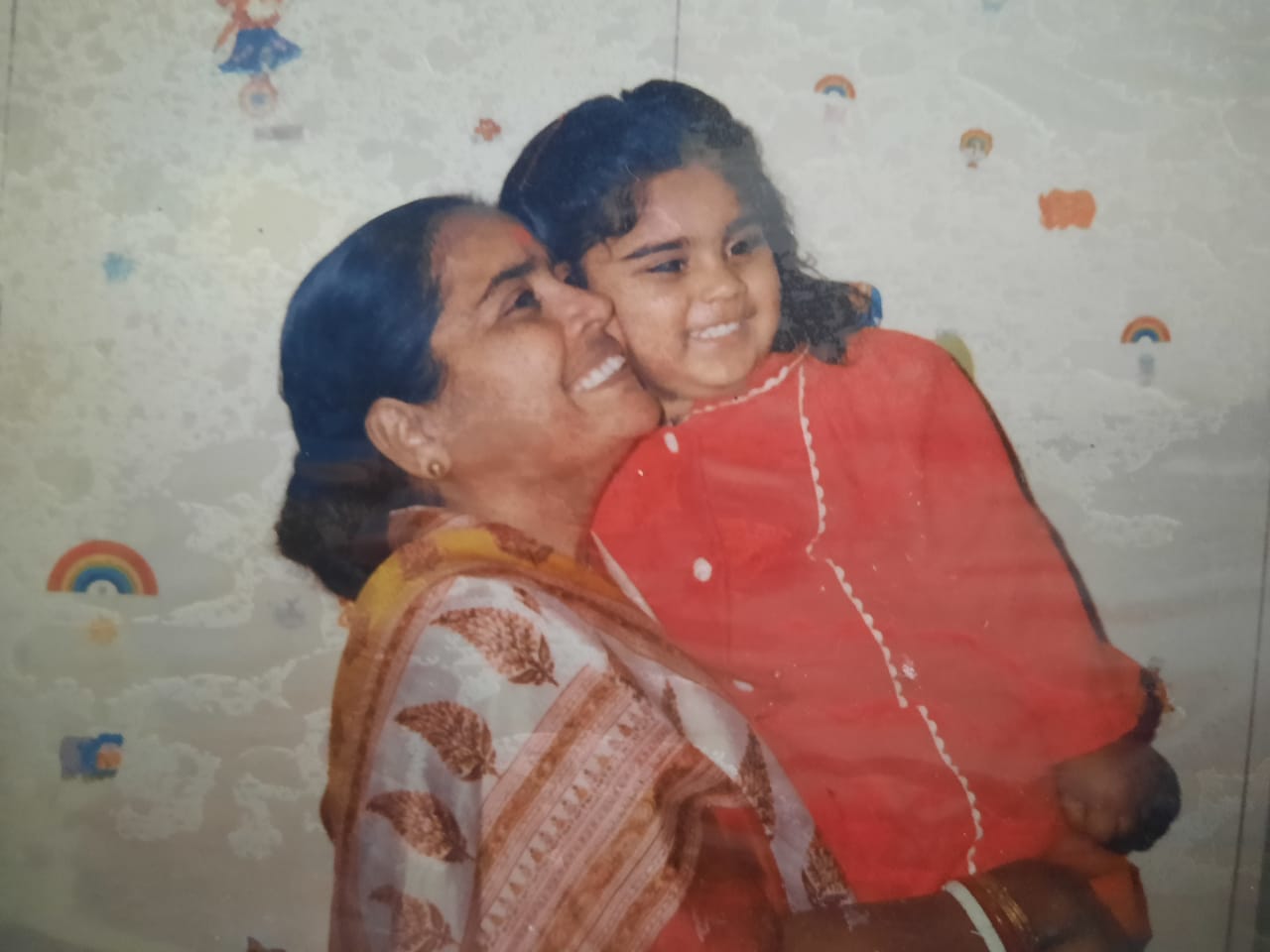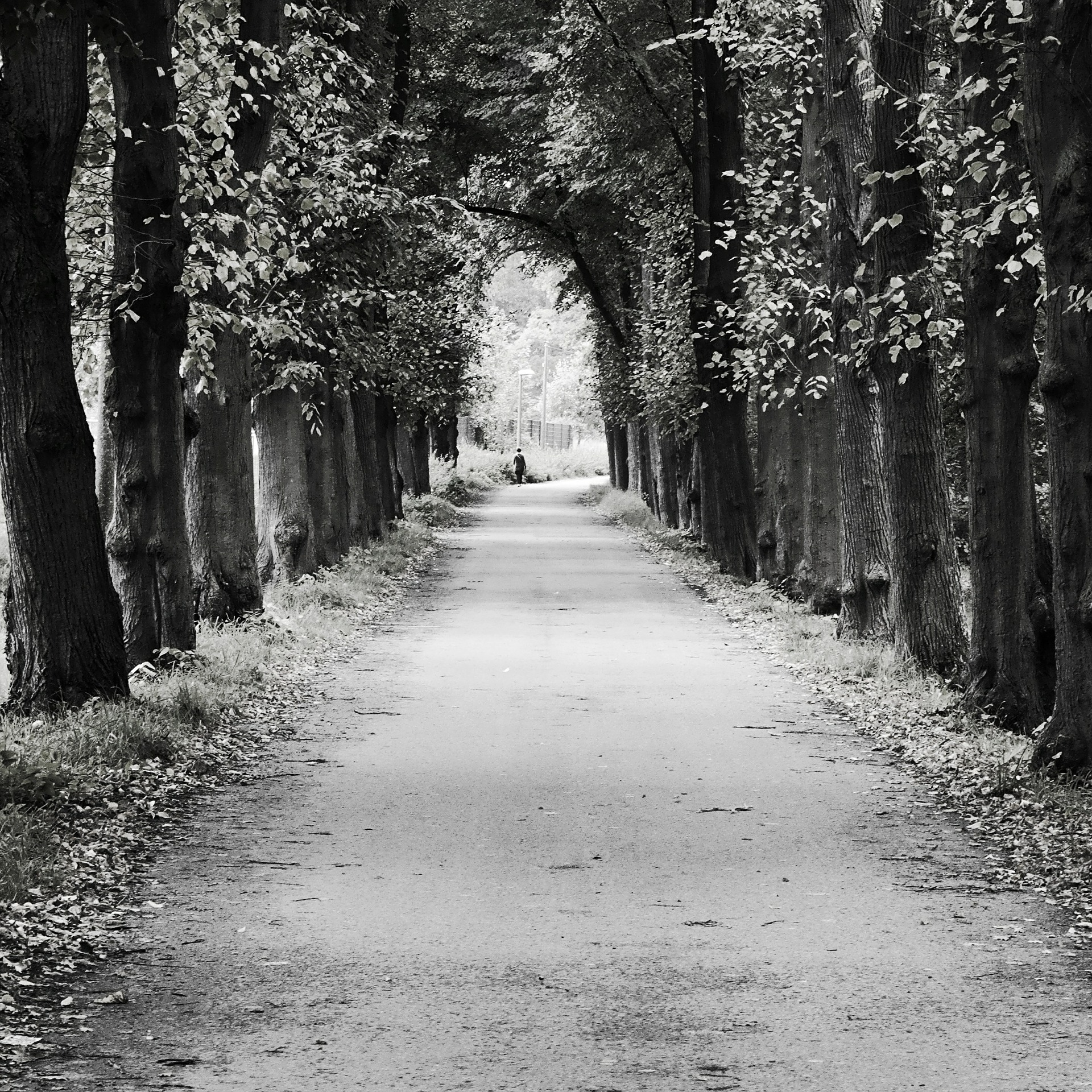The Beach : Joie Bose
“Run! Run to the sea, and blow her a kiss!” said my grandma, I lovingly called Dida, unleashing the five year old me, from the firm grip of her hand. I ran the entire length from our hotel to the wet sand where the froth of the waves came up to, and looked back. From where I could see her, she seemed as big as my little finger. Her white sari with the trademark red border, helped me distinguish her from the other dark figures I saw near her. The vastness of the light blue sea seemed as frightening to me, as appealing. So, I waited for her to become my Dida from being the tiny red and white blob she was.
The strong wind kept blowing sprays of salty water on my face and wet my yellow sundress. “I hate the salty waters the wind brings, when you stand on the beach, it burns my eye”, I had told her on our way here.
“It’s the sea, trying to kiss you, my dear!” she said.
“Why is the sea’s kiss so salty, are my kisses salty too?” I had asked.
She had laughed but immediately replied, unlike other grown ups, “Your kisses are the sweetest. But the sea is old, and when you get very very old, as old as the sea the kisses become salty. Don’t you know your opposites? What is the opposite of young?”
“Old”.
“What is the opposite of salty?”
“Sweet”
“And what is the opposite of black?”
Though I did follow most of her logic, I didn’t know why this question was relevant, so I replied, “White, why?”
“Because, your hair is black, that of the old lady sea is white, you see, the waves, when they come up to you, what colour are they?”
Standing on the edge of the sea, I smiled looking at the froth of the waves. “What are you smiling at?” Dida asked, putting her hand on my shoulder. “The stray hair of the old maid, sea”, I replied before jumping into the waves themselves and blew her a kiss.
Later, that evening, I sat with Dida on the beach, drinking fresh coconut water. The sea had changed colours, it was dark grayish now. “Why is the sea different now?” I asked her. “What were you wearing in the morning?” she asked me in return.
“The yellow dress, I bought at the Mall.”
“What are you wearing now?”
“Jeans”
She smiled a smile, I would now with a better vocabulary say, was a benevolent smile but then all I said was, “ Lovely smile.”
“Do you love this lovely smile?”
“I love you”, I said, hugging her tightly. She was one of the very few people who never thought I was annoying or irritating. She always answered all my questions, quite satisfyingly. She never scolded me or allowed anyone to scold me, when she was around. I always felt very safe and secure with her.
“Let me tell you a story, of when I was young and when I came with my grandmother to the beach. This was one of the last stories she had told me” she said. This was another thing I loved about Dida; she always had loads of stories to tell, mostly of the things my dreams were made of. Though most of the stories always ended with a proverb or a lesson, she said them so beautifully that I was always ready for one. I turned to her eagerly and saw the setting sun fall on her face, making her glow, almost like an angel. But I had more important questions to ask before she continued.
“Were you as young as me, when you had a grandma?”
“Yes” came the prompt reply.
“Did you love her?”
“Of course I did”
“Did she tell you stories too?”
“Sure, she did. But we played a story game. For every story she told me I had to pay her, with a kiss and a pretty sea shell. Every time I came to the beach I collected many shells. So even now, when she is long gone, I see these shells and am reminded of stories.”
“Where is she now?”
“Tired of living for over ninety years, she is now resting in heaven.”
“Oh! Is heaven near our hotel?”
“No, it is in the sky.”
I immediately looked up at the sky, trying to catch a glimpse of my Dida’s grandma. All I could see was the evening star, twinkling.
She saw me gazing at the star and said, “People who go to heaven, become beautiful stars. They look down at the people they love, from high up above. They twinkle at night to tell us, they still love us and are watching over us.”
I could hear a hint of sadness in her voice and wanted to change it. When ever I sang a song or recited a poem she would immediately become very happy. So I said, “Dida, I know a poem about your grandma.” Inquisitively she asked, “What?”
I stood up, put my hands behind my back and started, “Twinkle, twinkle, little star…”
By the time I reached the end, I saw her wiping tears. I know when I cry like that, when silent tears just come out of your eyes. It is when I am alone, sleepless at night on my bed, wishing Dida was near me, telling me stories till I fall asleep. So I asked her, “You miss your grandma?” She merely nodded, trying to gulp in her tears. When I used to feel like that, my mother used to take me to grandma the very next day. So gallantly I said, “Don’t worry, I will take you too, tomorrow.” I was proud for I like feeling like that, very grown up.
“And how will you do that?” she asked, smiling. She was now the one asking questions. I guess she was reveling in the momentary change of roles.
“Umm…” I thought for a moment before saying, “We will take a boat and sail into the sea. See, where the sea ends, the sky begins. Your grandma will surely be there, in heaven. Now, don’t cry like a baby.”
That was when she regained her role and started laughing.
I asked, “Why are you laughing?”
“I am laughing because I am happy and a little girl here does not like seeing her Dida sad, does she?” She kissed me before continuing, “Do you know why I was sad? I was sad because not only did I miss her, but I hadn’t paid her for her last story. She left for heaven before I could do that. Now, I can’t go to heaven, because, once you go there you can never come back and how can I leave you and go? ”
“So, why don’t you send her a kiss and a sea shell by post? There are many sea shells here”, I suggested. I am sure a more mature me, would have been interested in the story but young as I was that story seemed of no consequence then.
“The postman does not go to heaven but don’t you worry. We just have to think, for where ever there is a will you will find there a way.” she said and I faced a real dilemma then. I racked my brains like never before trying to device a way to reach my grandma’s grandma. I saw my granny looking far away into the sea, probably thinking. I put my index finger on my cheek, for that I had heard was a better pose for ideas to come. But even after what seemed like forever I my mind remained blank. Suddenly Dida shrieked, “Eureka! I have an idea. Bottles float on water. So why don’t I put my kiss and a seashell in a bottle and throw it into the sea. The waves would surely take it to her.”
I thought it was the most brilliant idea she ever had. So we emptied the glass water bottle Dida always carried with her and put a seashell in it. She then blew a kiss in and hurriedly tightened the screw, lest the kiss blows away. Then we walked up to the waves and Dida threw the bottle into the sea and shouted, lest her voice be drowned by the sound of the waves, “Please take the bottle to my grandma in heaven.” “Please take the bottle to my grandma’s grandma”, I said, blowing to the sea, a kiss. Dida, looked at me and said, “If you ever have to contact me after I go to heaven, you know exactly what to do, don’t you?”
The prospect of her going to a place from where she would never be able to return and me being at a place where I would never be able to reach her was unthinkable for me, in fact quite saddening. So I settled the matter in my head and said, “We will go to heaven together.” Dida never argued with me so all she said was, “We will see about that, why don’t we walk back to the hotel, now? It’s getting quite dark.”
…
It’s been twenty years since that trip to the beach. I am married, now. Last year while I was away, honeymooning with my husband, my parents had returned to the same beach with Dida. She had a sudden heart attack and passed away on the beach itself. She was cremated before I came back. I never had a chance to say a proper goodbye, and that is one thing that keeps on bothering me. Silent tears swell up when ever I think of her, of when I think I never got to say good bye. It was only yesterday, when I was going through an old photo album and I came upon a picture of Dida and me taken on the beach. I was wearing the yellow sundress and Dida, her white sari with a simple red border. Teary eyed I gazed at the photograph and was going through that day on the beach when I was five, a day, vividly etched in my mind. Photographs make the past seem so alive. It felt just like the other day when she was around, telling me stories with proverbs like a stitch in time saves nine, or where there is a will there is a way. Suddenly the idea dawned on me.
I have packed my bag now and am waiting for the train. I am going back to the place that means a lot more to me, now Dida is no more. I have a bottle in my bag, with a blown in kiss and a letter in it that says, “I love you Dida and will always miss you. Till we meet again, goodbye.”













Comments